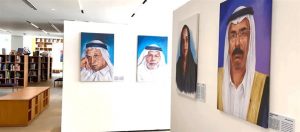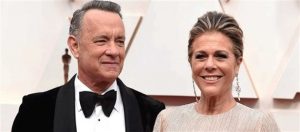Ibrahim Nasrallah, who won this year’s International Prize for Arabic Fiction, talks about his prize-winning novel and the brutality inherent in human beings
When I speak to Ibrahim Nasrallah, he is still trying to come to terms with the fact that his novel, The Second War of the Dog, has emerged as the winner of this year’s International Prize for Arabic Fiction (IPAF). Along with the $50,000 cheque, Nasrallah has also been awarded funds for an English translation of the novel.
“My grand prize is the love of my readers,” he told Weekend Review in an exclusive interview.
The novel was hailed by the judges as “a masterful vision of a dystopian future in a nameless country”.
The Second War of the Dog focuses on Rashid, the corrupt main character who changes from an opponent of the regime to a materialistic and unscrupulous extremist. Nasrallah describes a futuristic world where greed intensifies and human values and ethics are ignored.
Nasrallah’s clever use of comedy mixed with misery and hopelessness to depict the plight of refugees and the cold indifference with which they are treated creates a haunting image of Palestine.
Excerpts:
The title of your novel is particularly interesting because it talks about a second war of the dog. Was there a first war of the dog?
The title is one of the most difficult facets of a novel because it is the threshold of the book and must be attractive as well as largely expressive of the essence of the novel. The Second War of the Dog simply came from the course of events. I mean there is a first dog war and a second dog war as you mention but I had many options, including The Dog War, but I thought the title would be The Second War of the Dog because of its harmony with the events of the novel. I focus a lot on the title usually, so much so that once I even delayed publishing one of my novels for a year just because I could not find a suitable title for it. It really took time to find the right title — Lost City Guard.
Do you think this novel is borne out of your own interest in writing about Palestine?
This novel is undoubtedly and essentially about Palestine because if this horrifying, destructive war continues, we will not reach even near our desired dream destination. Nature and environment are not separate from Palestine. We have been plagued by a dog war for more than a century, which we have been resisting to date, without the record of a winner. With nature being destroyed concomitantly and living beings getting destroyed, no one wins.
Can your novel be considered futuristic because its heroes are talking about what can happen to this planet?
The Second War of the Dog is considered to be the novel of the future and does not revolve around the Arab world. I am happy that this is my first novel to speak about the future which won an award. This means the writers are comfortable enough to think without fear.
In the novel, you deal with the question of the wildness that invades our planet, and you make a comparison between the animal and the human, and confirm that man steals everything from the animal and eventually destroys it. How does this happen when humanity has made strides in enlightenment, progress and creativity?
I ask the following question: Did we reach enlightenment in its true sense or are we talking about enlightenment a lot when we could not be enlightened? This is one of our problems. As for animals, there is an animal that plays in my novels and even in my poems. I refer here to my poetry book, Wolf and Lupus. I think that humans stole the talent of animals and thus destroyed them. These dialogues are repeated in the novel. We are not satisfied by simply stealing the talents of animals, but we have also killed them while they are our partners on the ground. They were present before us. To be more precise, we have even robbed plants of their properties and essences of sustenance to make antiperspirants or for protection treatment. What would happen if the universe was devoid of animals? How will the shape of this universe be?
We perceive animals negatively. Animal means negative and human means positive. This is an unpardonable crime we have committed due to our superiority over these beings because we possess the ability to destroy them and control their destinies as we wish. I am now in full support of cunning animals in nature than ever accepting a handful of savage humanity. The animal goes to kill one prey at a time while man goes hunting to kill a hundred birds or kill tens of thousands of fish. This is the real savagery.
Do you think this novel is a deviation from your previous novels?
On the contrary, I consider it a continuation of my previous novels. It is part of the shorofat novel project. The Second War of the Dog is a sequel to novels such as The Snowman’s Terrace. This may be considered as the first part of The Second War of the Dog, or the prelude to the war.
What do you think about the violence and extremism that prevails in our world?
There is not a single word about Daesh, or about Al Nusra and other extremist organisations that have messed up our lives, but I believe that they exist under every line of the narrative and tell us what will happen to us if the world continues to do so. The issue does not concern fanatics but rather everyone. Abstaining from war is the greatest test for man in controlling his instincts, aggression and brutality. He did not truly benefit from the great gifts of literature, theatre, epics, philosophy, thought, fine arts, visual and performing arts or even sacred heavenly messages that he acquired over the ages. This is a question that bothers me a great extent.
The question in the novel comes in this form — who wants man? Should I cancel the past? Man has not benefited from his experiences at all. War was waged and men were killed by arrows in the past. Soon he developed the arrow into a bayonet, the spear and catapult into missiles, such transformation from primitive to modern weapons went on until he reached the manufacture of the nuclear bomb and other lethal weapons. All these issues have eliminated the past in the novel.
There are a variety of narrative styles in The Second War of the Dog, including fantasy. Is this choice to express a familiar theme?
I did not choose fantasy but chose many other styles. I always say that in the depths of man there are endless contradictions and a set of ideas that shape it, and it also does not end. Sometimes they are conflicting and sometimes others are compatible because they reflect the reality in which we live, and the novel, which is the mirror, reflects that. Therefore, it is not possible to express in a traditional manner a completely non-traditional reality. The novel does not stem from a vacuum but from a long travel through bitter and brutal experiences. Every action lives in us in one way or another. All the techniques I have used in the past, such as exoticism, fantasy and cinematic forms, actually exist in this novel but are driven forward. The difficulty in furnishing the future with inventions is that the reader cannot be persuaded without it. I admit that the only interesting thing about writing this novel is the inventions that inspired my mind and to give birth to more in one way or another.
Is it possible to write an intellectual novel? Can we compare your novel to George Orwell’s works?
A novel cannot be written without daily events and without human relations but the question is how far can we go into events? I do not write a classic novel but aspire to write a modern novel. Critics have also described my first novel, The Fever of the Brains, as a post-modern one. I have tried to write all kinds of novel methods of experimentation, fantasy and exotic and historical novel, inverted, and transfer events from the past to the future. Then, when you put up a strong topic, you have to think about issues at a very high intellectual level.
I think about the destiny of man and his fate from the inside. George Orwell was concerned by the power, corruption and dominance in society, while my novel is concerned with corruption of human nature and when people are corrupted, power will be automatically corrupted. This is the equation. The novel went to corruption of the ordinary citizen, and the power of destruction inherent in it. The matter is that we refuse the others because they are different from us, so what if we are similar to each other? The result is one — the instinct of savagery present in us humans.
Do you think the Palestinian narrative is flourishing today?
I think that the Palestinian novel in the last 10 years has gone through an important renaissance, which is not within the concept of a narrow homeland, despite all the conditions of siege and war. People are insoluble and cannot be impoverished just because they are alive.
gulfnews




